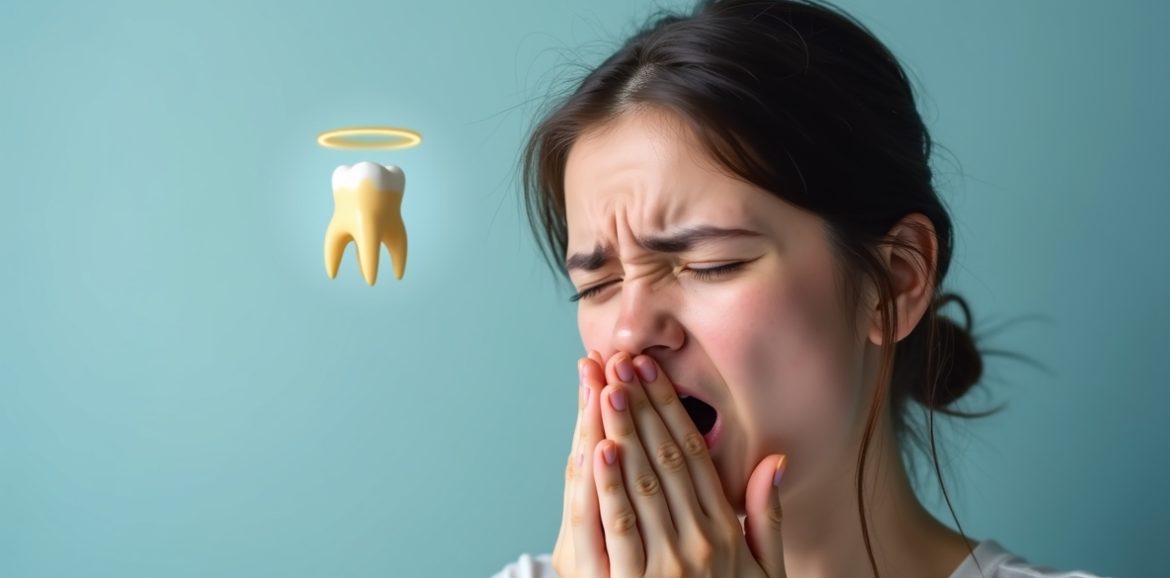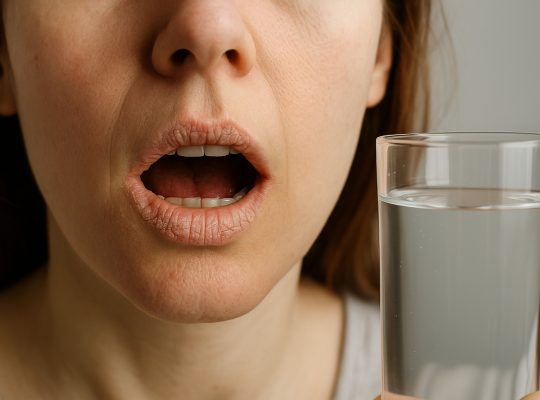Bad breath, or halitosis, affects millions of people across the world. It can be an uncomfortable experience and, more importantly, it can have a deeper impact on our social and professional lives. For some, it’s an occasional issue, while for others, it can be a constant struggle. But what many don’t realize is that the causes behind bad breath are not always what they seem. It’s more than just poor hygiene or that last cup of coffee. Understanding what causes bad breath and how to fix it can be the key to regaining your confidence and freshness.
What Causes Bad Breath?
Bad breath can come from various sources. It’s not just about not brushing your teeth properly; there are a number of other factors at play. By understanding these causes, you can begin to address the root of the problem, leading to more effective and long-lasting solutions.
1. Poor Oral Hygiene
The most common cause of bad breath is poor oral hygiene. When food particles remain in your mouth, they can cause bacteria to grow, which produces an unpleasant odor. If you don’t brush and floss regularly, plaque can build up, contributing to this issue.
- Plaque buildup
- Food particles
- Bacteria growth
2. Dry Mouth (Xerostomia)
Saliva plays a crucial role in keeping your mouth fresh by washing away food particles and bacteria. When your mouth becomes dry, it can contribute to bad breath. This condition can occur if you’re dehydrated, if you’re on certain medications, or even when you sleep.
- Dehydration
- Medications
- Mouth-breathing during sleep
3. Gum Disease
Gum disease, also known as periodontitis, can lead to bad breath. When bacteria in the mouth infect the gums, it causes swelling, bleeding, and bad odor. If left untreated, gum disease can become more severe and lead to further complications.
- Inflammation of gums
- Tooth loss risk
- Bacteria buildup under the gums
4. Diet Choices
The food you eat can have a significant impact on your breath. Foods like garlic and onions contain compounds that are absorbed into your bloodstream and expelled through your lungs, leading to a strong odor. Similarly, high-protein diets or low-carb diets can also create bad breath due to the way your body processes these foods.
- Garlic and onions
- High-protein or low-carb diets
- Strong-smelling foods
5. Smoking and Tobacco Use
Using tobacco products not only leaves your mouth with an unpleasant odor but also contributes to dry mouth, which worsens bad breath. Smoking can also increase the buildup of bacteria in your mouth, making the problem worse.
- Dry mouth
- Bacteria buildup
- Oral infections
6. Underlying Health Conditions
Bad breath can sometimes be a sign of an underlying health problem. Conditions like diabetes, acid reflux, liver disease, and kidney problems can all lead to bad breath. In these cases, addressing the condition directly is key to resolving the issue.
- Diabetes
- Acid reflux
- Liver or kidney disease
7. Infections in the Mouth
Infections in the mouth, including tooth infections, sinus infections, or throat infections, can also lead to bad breath. These conditions often produce pus or bacteria that release a foul odor.
- Tooth infections
- Sinus issues
- Throat infections
How to Fix Bad Breath: Simple Solutions That Work
Now that you know some of the common causes, it’s time to explore how you can take control of your breath and put an end to the worry. There’s no one-size-fits-all approach, but understanding the available fixes and incorporating them into your daily routine can lead to fresh, long-lasting results.
1. Improve Your Oral Hygiene Routine
One of the simplest ways to fight bad breath is by improving your oral hygiene. Brushing your teeth at least twice a day, flossing, and using mouthwash can help remove food particles, plaque, and bacteria that contribute to bad breath.
- Brush for at least two minutes
- Don’t forget to floss
- Use mouthwash with antibacterial agents
2. Stay Hydrated
Drink plenty of water throughout the day to keep your mouth moist and help flush out food particles and bacteria. Staying hydrated also helps prevent dry mouth, which is a common cause of bad breath.
- Drink water consistently
- Use a humidifier at night if you breathe through your mouth
- Chew sugar-free gum to stimulate saliva production
3. Clean Your Tongue
Your tongue can be a breeding ground for bacteria, which contributes to bad breath. Make sure to gently brush your tongue or use a tongue scraper to remove any buildup. This can significantly improve your breath and make your mouth feel fresher.
- Brush or scrape your tongue daily
- Focus on the back of the tongue
- Consider using a specialized tongue cleaner
4. Visit Your Dentist Regularly
A regular check-up with your dentist can help identify and treat any underlying issues, such as gum disease or cavities, that may be contributing to bad breath. Professional cleanings can also help remove tartar buildup that brushing alone can’t address.
- See your dentist every 6 months
- Get your teeth professionally cleaned
- Address gum disease early
5. Adjust Your Diet
If you find that certain foods are triggering bad breath, consider adjusting your diet. Eating a balanced diet with plenty of fruits and vegetables can help promote oral health. Avoid foods that have strong odors, and try chewing gum after meals to help freshen your breath.
- Eat more fiber-rich foods
- Avoid spicy or strongly aromatic foods
- Use fresh herbs like parsley to naturally freshen breath
6. Quit Smoking or Using Tobacco Products
If smoking or using tobacco products is contributing to your bad breath, consider quitting. Not only will this improve your breath, but it will also benefit your overall health and reduce your risk for gum disease and oral cancer.
- Find support to quit smoking
- Consider nicotine alternatives
- Visit a dentist for tips on improving oral health after quitting
7. Treat Underlying Health Conditions
If you suspect that an underlying health condition is causing your bad breath, seek treatment. Conditions like acid reflux, diabetes, or kidney disease can cause bad breath, and addressing these health problems directly can often resolve the issue.
- See your doctor for a check-up
- Manage chronic conditions
- Follow your doctor’s treatment plan
Natural Remedies for Bad Breath
For those looking for more natural solutions, several home remedies can help reduce bad breath. These are simple, affordable, and can be easily incorporated into your routine.
1. Baking Soda
Baking soda has natural antibacterial properties and can help neutralize bad odors. You can use it as a toothpaste substitute or mix it with water to rinse your mouth.
- Mix baking soda with water and swish it around
- Use baking soda as a gentle toothpaste
- Brush your teeth with it once a week
2. Green Tea
Green tea is rich in antioxidants and has antibacterial properties that can help fight bad breath. Drinking a cup of green tea can freshen your breath and improve your oral health.
- Drink a cup of unsweetened green tea
- Consider a green tea rinse for your mouth
- Choose natural green tea without additives
3. Apple Cider Vinegar
Apple cider vinegar is believed to help balance the pH level in your mouth, making it a natural remedy for bad breath. A diluted solution can be used as a mouthwash.
- Mix one tablespoon of apple cider vinegar with water
- Swish it around for 30 seconds
- Rinse with water afterward to avoid enamel erosion
Final Thoughts
Bad breath is a common concern that can be caused by a variety of factors, from poor oral hygiene to more serious underlying health issues. The good news is that it’s often preventable and treatable. By improving your oral hygiene, staying hydrated, and addressing any medical conditions, you can significantly reduce or even eliminate bad breath. Natural remedies like green tea or baking soda can also be helpful for those looking for easy, at-home solutions. Fresh breath isn’t just about feeling confident—it’s a sign of overall good health. Keep your mouth, body, and mind fresh, and enjoy a more confident and energetic you.






